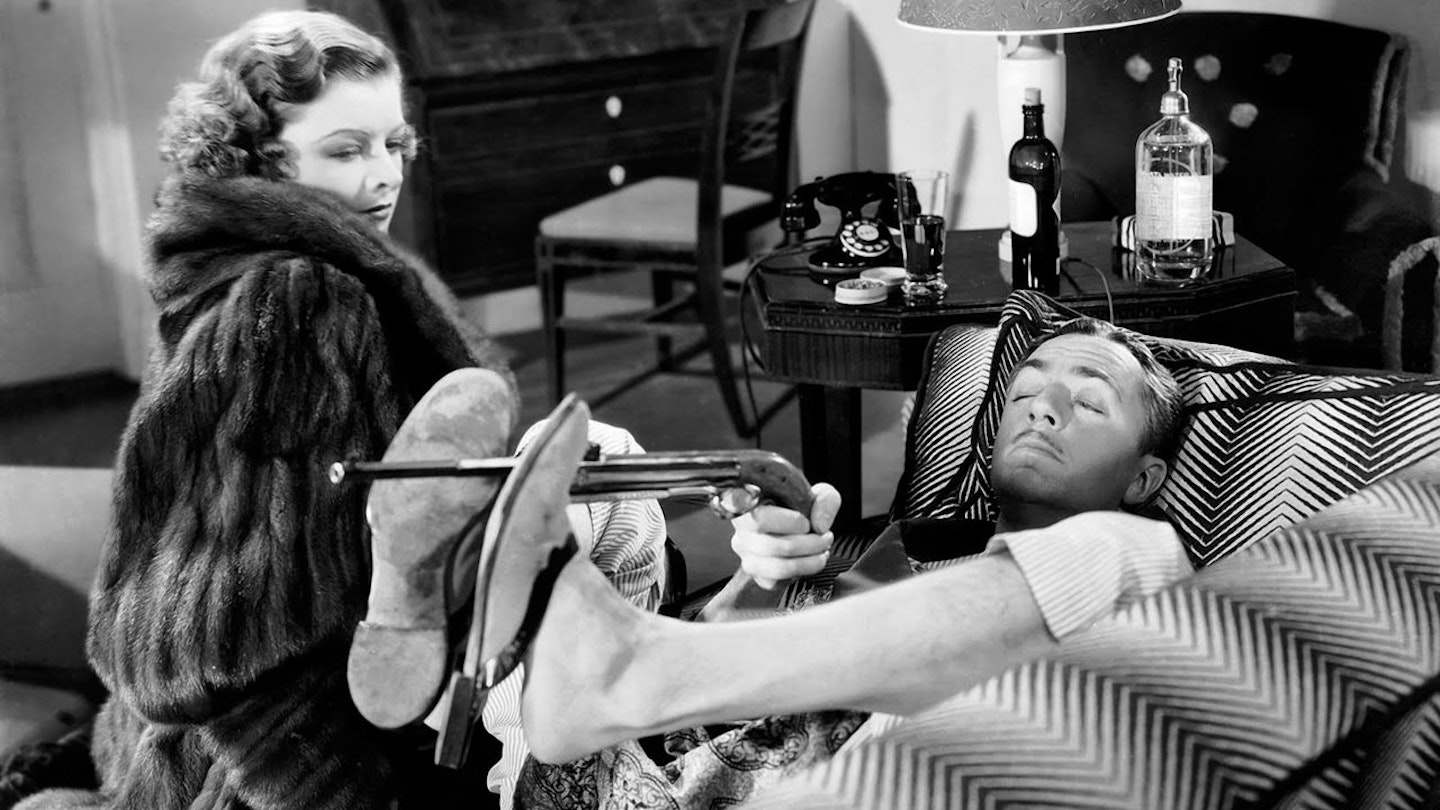Although Clark Gable was hailed King when Myra Loy was crowned Queen of Hollywood, she was always at her best when paired with the ever-charming William Powell. They made 14 features together, but the best six saw them playing the ultra-chic sleuths Nick and Nora Charles in the whodunits spun off from W.S. Van Dyke's 1934 adaptation of Dashiell Hammett's hard-boiled masterpiece, The Thin Man.
MGM chief Louis B. Mayer had planned to headline Laura La Plante (who was on the verge of retiring after failing to make the transition from silents), but `One-Shot Woody' Van Dyke, who had directed Powell and Loy in Manhattan Melodrama, insisted on casting the 29 year-old, who was already a veteran of over 80 pictures. His instincts were sound, as the shoot was completed in 16 days (although some sources say 12, others 18) on a bargain budget and it went on to land four Oscar nominations. Not bad for what was essentially a programmer.
It was something of a misnomer, however, to brand the entire series after the victim in the first case. But somehow the moniker seemed to suit Powell's bibulous shamus, who was equally at home with sophisticated socialites and quick-fisted thugs. But he would have been just another B-movie troubleshooter without Loy's wisecracking sidekick, whose shrewd intuition and readiness with a martini made the Charles seem the perfect American couple. And then there was Asta, the wire-haired terrier with a nose for clues, and Nick Jr., who became a fixture after Another Thin Man (1939; ***).
The quality dipped slightly in the later entries, as Loy lost interest in the increasingly formulaic plotlines and the impossibly urbane banter (although Powell continued to revel in a role that he claimed came closest to his off-screen personality). But After the Thin Man (1936; ****), Shadow of the Thin Man (1941; ***), The Thin Man Goes Home (1944; ***) and Song of the Thin Man (1947; ***) remain utterly irresistible.



